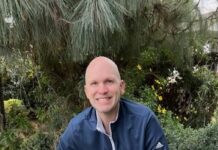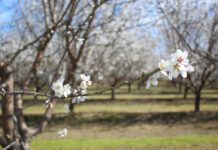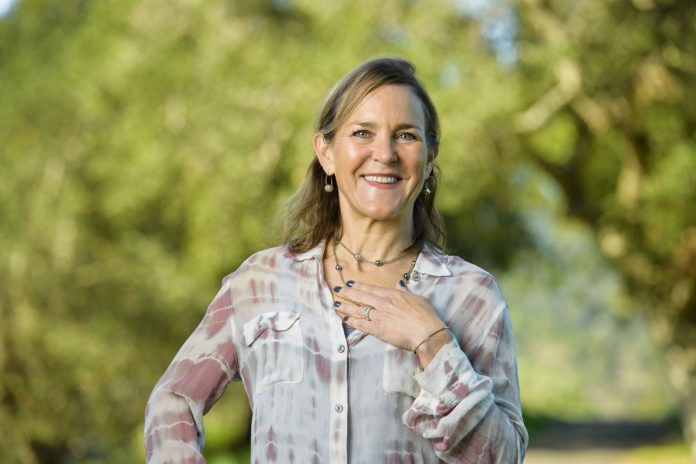
Julia Violich, the “Jill of All Trades” for Capay Farms, started her career in business with director positions at IBM and Prudential, but after attending graduate school and spending two years in the global healthcare finance field, she turned her attention to agribusiness.
She is now instrumental throughout the operations of Capay Farms, the orchard management company for Violich Farms Inc., a family-owned almond and walnut operation in Northern California.
Violich has a strong interest in sustainability and water management and helps to oversee the sustainable growing methods and water management practices at Violich Farms. She also serves as part of the Grower’s Circle for the Sustainable Food Initiative at the University of California’s Haas School of Business.
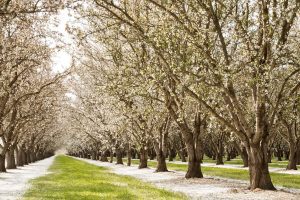
In addition to her role at Capay Farms, Violich co-founded the TWENTY24 professional women’s cycling team and the Bear National Team and serves as its finance director. These two cycling teams have helped train multiple Olympic athletes and world champions.
In an interview with West Coast Nut magazine, we asked Violich to share some of her thoughts about her experiences in the tree nut industry as well as her views on the past and the future of growing tree nuts.
What crops do you grow?
We grow many varieties of almonds and Chandler and Howard walnuts. In the past, we have grown olives, grapes and prunes as well.
Where do you farm?
Our farm property is in Glenn, Butte and Tehama counties in Northern California.
Tell me a little bit about the history of your farming operation.
We are a first-generation family farming operation. We purchased our first orchard in the mid-1980s, but we really started to grow significantly starting in 2000.
Violich Farms was founded in 1987 and owns the Capay Ranch, one of the largest plots of continuous farmland in the region with more than 3,800 connected acres. Capay Farms now manages close to 13,000 acres of farmland in Northern California.
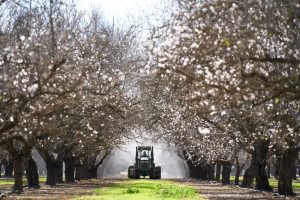
How have your farming practices evolved in recent years? What new production practices have you embraced and why?
Capay Farms has been proactive in pursuing sustainable production practices since the beginning. We were one of the first farms to create an aggressive water-monitoring program. We have been utilizing water-monitoring sensors throughout our orchards for over a decade. This system helps us use irrigation water more efficiently and lowers our operating costs while improving the quality and yield of our crops.
In addition, with newly developed orchards, we use soil-mapping technology to design all our irrigation systems to map soil types instead of the traditional block. This enables us to maximize like irrigation schedules and irrigate more efficiently.
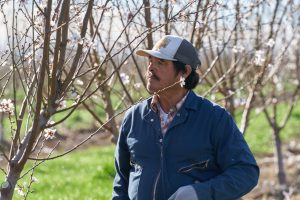
We are also committed to using sustainable forms of energy whenever possible. Nearly 88% of our irrigation pumps are powered by solar energy or natural gas.
Being good stewards of our soil is important. We implemented a comprehensive soil-testing program that lets us replace vital nutrients at the right time with a customized fertilization program designed using the latest research on soil nutrients.
Capay Farms is committed to lowering our waste outputs as well. We turn our nut shells into livestock bedding, and the hulls become nutritious feed for dairy cows.
We also use goats on some of our non-agricultural land to control weeds and vegetation.
What are the three things that keep you up at night related to growing?
Politics, Mother Nature and market prices are the things that keep me up at night. None of these are in our control and therefore hard to mitigate if they go south.
What are you most hopeful for in the future when it comes to farming almonds, walnuts, pistachios, etc.?
I think the future of nut farming is going to be found in widespread adoption of energy- and water-efficient farming practices as well as a greater commitment to sustainability.
What in your opinion needs to happen to set the industry in the best possible direction for the future?
For our industry to succeed in the future, we need better control of supply and growth demand. Our future also relies on gaining greater representation at the state and federal legislative levels to avoid future “tariffs” and shipping issues.
What do you think the biggest assets are of the nut industry in California?
Our biggest asset is our industry’s ability to cooperate. We are an industry made up of cooperative competitors. Most farmers work together in a collaborative manner, which makes our whole greater than the sum of the parts.
What is your proudest achievement as it relates to your professional development?
My proudest achievement is the commitment we’ve made to innovation and sustainability in everything our company does. I am also very proud of the Capay Farms team and the synergies we are able to achieve working together toward our goals.
How do you give back to the community both in agriculture and in the community where your operation is based?
We believe giving back to the community and encouraging the next generation of farmers is important.
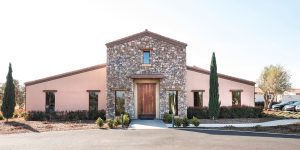
Locally, we support more than a handful of organizations, including the Navy Seal Foundation, Boys and Girls Clubs, the Enloe Foundation, Butte County Young Farmers and Ranchers, the Honeybee Discovery Center and many other organizations.
In addition, we participate in career fairs and educational events. We are also very active with local agencies, especially those that focus on water issues.
What advice do you have for a young person getting into farming nuts today?
I want young people to know farming is still a viable career choice. Your fellow farmers are engaged and collaborative. Also, working in an industry where a hands-on approach is needed is very satisfying.
Who was the biggest influence or mentor for you in your nut farming career?
One of the biggest influences on my career was the late Jim Paiva of Riverwest and Paiva Farms. I’m also lucky to have a great management team who helps me grow.
What do you think the biggest advancement has been in the field of nut growing during your career?
Because water is essential to what we do, I think water efficiency technologies such as soil mapping and soil moisture probes are some of the biggest advancements in the industry.
What advancements do you foresee having a big impact in the future?
Again, it goes back to water. I think farmers gaining a better understanding of water management, including recharge and catchment systems, will make a big difference in how we farm in the future.







